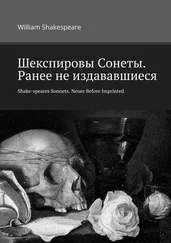[Dramatis Personae
Don Pedro , Prince of Arragon
Don John , his bastard brother
Claudio , a young lord of Florence
Benedick , a young lord of Padua
Leonato , governor of Messina
Antonio , his brother
Balthasar , attendant on Don Pedro
Conrade ,
Borachio , followers of Don John
Friar Francis
Dogberry , a constable
Verges , a headborough
Sexton
Boy
–––––
Hero , daughter to Leonato
Beatrice , niece to Leonato
Margaret ,
Ursula , gentlewomen attending on Hero
–––––
Messengers, Watch, Lord, Attendants, etc.
Scene: Messina ]
Enter Leonato, governor of Messina, Hero his daughter, and Beatrice his niece, with a Messenger.
Leon. I learn in this letter that Don [Pedro] of Arragon comes this night to Messina.
Mess. He is very near by this, he was not three leagues off when I left him.
Leon. How many gentlemen have you lost in this action?
Mess. But few of any sort, and none of name.
Leon. A victory is twice itself when the achiever brings home full numbers. I find here that Don [Pedro] hath bestow’d much honor on a young Florentine call’d Claudio.
Mess. Much deserv’d on his part, and equally rememb’red by Don Pedro. He hath borne himself beyond the promise of his age, doing in the figure of a lamb the feats of a lion. He hath indeed better bett’red expectation than you must expect of me to tell you how.
Leon. He hath an uncle here in Messina will be very much glad of it.
Mess. I have already deliver’d him letters, and there appears much joy in him, even so much that joy could not show itself modest enough without a badge of bitterness.
Leon. Did he break out into tears?
Mess. In great measure.
Leon. A kind overflow of kindness. There are no faces truer than those that are so wash’d. How much better is it to weep at joy than to joy at weeping!
Beat. I pray you, is Signior Mountanto return’d from the wars or no?
Mess. I know none of that name, lady. There was none such in the army of any sort.
Leon. What is he that you ask for, niece?
Hero. My cousin means Signior Benedick of Padua.
Mess. O, he’s return’d, and as pleasant as ever he was.
Beat. He set up his bills here in Messina, and challeng’d Cupid at the flight, and my uncle’s fool, reading the challenge, subscrib’d for Cupid, and challeng’d him at the burbolt. I pray you, how many hath he kill’d and eaten in these wars? But how many hath he kill’d? for indeed I promis’d to eat all of his killing.
Leon. Faith, niece, you tax Signior Benedick too much, but he’ll be meet with you, I doubt it not.
Mess. He hath done good service, lady, in these wars.
Beat. You had musty victual, and he hath holp to eat it. He is a very valiant trencherman, he hath an excellent stomach.
Mess. And a good soldier too, lady.
Beat. And a good soldier to a lady, but what is he to a lord?
Mess. A lord to a lord, a man to a man, stuff’d with all honorable virtues.
Beat. It is so indeed, he is no less than a stuff’d man. But for the stuffing—well, we are all mortal.
Leon. You must not, sir, mistake my niece. There is a kind of merry war betwixt Signior Benedick and her; they never meet but there’s a skirmish of wit between them.
Beat. Alas, he gets nothing by that. In our last conflict four of his five wits went halting off, and now is the whole man govern’d with one; so that if he have wit enough to keep himself warm, let him bear it for a difference between himself and his horse, for it is all the wealth that he hath left to be known a reasonable creature. Who is his companion now? he hath every month a new sworn brother.
Mess. Is’t possible?
Beat. Very easily possible. He wears his faith but as the fashion of his hat: it ever changes with the next block.
Mess. I see, lady, the gentleman is not in your books.
Beat. No, and he were, I would burn my study. But I pray you, who is his companion? Is there no young squarer now that will make a voyage with him to the devil?
Mess. He is most in the company of the right noble Claudio.
Beat. O Lord, he will hang upon him like a disease; he is sooner caught than the pestilence, and the taker runs presently mad. God help the noble Claudio! If he have caught the Benedick, it will cost him a thousand pound ere ’a be cur’d.
Mess. I will hold friends with you, lady.
Beat. Do, good friend.
Leon. You will never run mad, niece.
Beat. No, not till a hot January.
Mess. Don Pedro is approach’d.
Enter Don Pedro, Claudio, Benedick, Balthasar, and [Don] John the Bastard.
D. Pedro. Good Signior Leonato, are you come to meet your trouble? The fashion of the world is to avoid cost, and you encounter it.
Leon. Never came trouble to my house in the likeness of your Grace, for trouble being gone, comfort should remain; but when you depart from me, sorrow abides and happiness takes his leave.
D. Pedro. You embrace your charge too willingly. I think this is your daughter.
Leon. Her mother hath many times told me so.
Bene. Were you in doubt, sir, that you ask’d her?
Leon. Signior Benedick, no, for then were you a child.
D. Pedro. You have it full, Benedick. We may guess by this what you are, being a man. Truly the lady fathers herself. Be happy, lady, for you are like an honorable father.
Bene. If Signior Leonato be her father, she would not have his head on her shoulders for all Messina, as like him as she is.
Beat. I wonder that you will still be talking, Signior Benedick, nobody marks you.
Bene. What, my dear Lady Disdain! are you yet living?
Beat. Is it possible disdain should die while she hath such meet food to feed it as Signior Benedick? Courtesy itself must convert to disdain, if you come in her presence.
Bene. Then is courtesy a turncoat. But it is certain I am lov’d of all ladies, only you excepted; and I would I could find in my heart that I had not a hard heart, for truly I love none.
Beat. A dear happiness to women, they would else have been troubled with a pernicious suitor. I thank God and my cold blood, I am of your humor for that: I had rather hear my dog bark at a crow than a man swear he loves me.
Bene. God keep your ladyship still in that mind! so some gentleman or other shall scape a predestinate scratch’d face.
Beat. Scratching could not make it worse, and ’twere such a face as yours were.
Bene. Well, you are a rare parrot-teacher.
Beat. A bird of my tongue is better than a beast of yours.
Bene. I would my horse had the speed of your tongue, and so good a continuer. But keep your way a’ God’s name, I have done.
Beat. You always end with a jade’s trick, I know you of old.
D. Pedro. That is the sum of all: Leonato—Signior Claudio and Signior Benedick—my dear friend Leonato hath invited you all. I tell him we shall stay here at the least a month, and he heartily prays some occasion may detain us longer. I dare swear he is no hypocrite, but prays from his heart.
Читать дальше












